Play kitchens with their adorable pretend ovens and child-sized refrigerators are almost too cute to pass up! Yet, a kitchen helper tower is an equally attractive option you might consider purchasing for your toddler. So, which of these is best for your little one?
As a Montessori mom, I'd pick a helper tower over a play kitchen every time. Although my kids like playing pretend, they don’t need a play kitchen to have fun. On the other hand, a helper tower has been a game-changer for building self-confidence, fine motor skills, independence, and drama-free mealtimes.
That said, both a kitchen helper tower and a play kitchen offer advantages. Let’s take a closer look at which might be the best choice for your child.
What Is a Kitchen Helper Tower?
In the kitchen, toddlers usually can’t see anything, much less help. A kitchen helper tower brings your little one up to where the action is! With a helper tower, your child can actively participate in snack and meal times, which offers many benefits to your child. Even young children can stir, chop, wash dishes, and more, with a helper tower.
In short, a kitchen helper tower is a stool that allows your toddler to access countertops, the sink, and more safely! A helper tower, also known as a toddler tower or learning tower, helps avoid falls with a railing.
Many different models offer a variety of features. We offer a convertible helper tower that can turn into a table and chair. Or, try our foldable helper tower, ideal for smaller kitchens.
What Is a Play Kitchen?
A play kitchen is a pretend or toy kitchen that gives children the opportunity to role-play with make-believe kitchen items. They often feature a pretend stovetop, oven, and refrigerator. Some may even have a working sink. Most play kitchens also include pretend food items and toy dishes that children can “cook” with.

A Montessori Perspective on Toys vs. Real Items
Maria Montessori was a brilliant educator who believed that children could learn more through holistic, hands-on learning. When she was creating her method, she tried offering children play kitchen items. She gave them play dishes, dolls, and similar items.
However, she also offered them real kitchen tools such as spoons, bowls, and more. She was surprised when the children preferred to use the real items!
Montessori guided children to make simple recipes like lemonade. Over time, she discovered that children gained many benefits from working with real kitchen items. Experiences in a real kitchen with real food and tools engage the senses and build essential skills.
Montessori thought these activities were so important that she created a whole curriculum area called practical life that includes many kitchen activities.
Montessori's practical life activities help children learn to cook, feed themselves, and clean up. A kitchen helper tower is a Montessori-inspired piece of furniture because it facilitates these activities. Through practical life activities like cooking, children learn to use real tools, achieve independence, and gain life skills.
Benefits of Choosing a Helper Tower Over a Play Kitchen
A kitchen helper tower offers many benefits and may engage children more than a play kitchen. Check out some of the top benefits that children can gain from using a helper tower:
Creates an Opportunity for Quality Time
It often seems as though just when you start cooking a meal, your toddler suddenly needs your attention. They might even melt down and want you to hold them. Or, your older child will want you to play with them.
With a kitchen helper tower, you can bring them up to your eye level and they can enjoy some quality time cooking with you! It can be as simple as having your child chop vegetables, shape bread dough, or stir something.
As toddlers, I invited my children to hop in the helper tower and help me cook. Now that they're older, my 6-year-old helps me with more advanced skills like making hamburger patties. My older children also help make a salad to go with dinner or stir sauces while I prep other items. Cooking together is such a joy and gives us a chance to talk about school, their soccer games, and more.
It is Practical
A kitchen helper tower occupies a small amount of space, yet provides impressive benefits. Move it around the kitchen to wherever you need it. Or, take it into the bathroom to brush teeth.
Our foldable helper tower even provides several standing platform height options so that the tower grows with your child. Plus, for the money spent, you can get a lot of use out of a helper tower.
Boosts Self-Confidence
When children contribute to the household, it can help them build self-confidence. The smile on a toddler’s face when they do something, “All by myself!” is priceless.
Did you know that experts say helping with chores like cooking boosts self-esteem? Even little ones enjoy feeling like valuable members of the household.
Builds Skills and Encourages Independence
With a kitchen helper tower, you encourage independence. This helps your toddler build hundreds of practical skills! From strengthening their hand muscles to learning basic math, cooking provides lots of learning opportunities.
My kids have been helping with cooking since they were young. Now, my 12-year-old makes his own scrambled eggs for breakfast, and my 9-year-old often cuts up fruit for a snack.
Improves Attitudes Toward Fruit and Vegetables
When children participate in food preparation, they’re more likely to try fruits and vegetables. Discover many fun kid-friendly recipes that can help your child warm up to trying new foods.

Discovering Cooking the Montessori Way with a Toddler Tower
In my opinion, bringing a helper tower into your kitchen can do so much more than a play kitchen.
Do you want more tips for cooking with your little one? As a former Montessori teacher and mom of three, I've spent a lot of time cooking with little ones. Create more space for your child to cook and grow their independence in the kitchen with my top tips:
- Add child-sized tools and dishes in a low cupboard that your child access easily.
- Keep some snacks in a space that's accessible for your child. Then, let them make their own snacks. Some examples are crackers, nut butter, fruit, cereal, etc.
- Encourage your child to share snacks with others. For example, they can slice a cucumber and put a toothpick in each slice, then offer it to friends or family. If your child enjoys playing “restaurant” or other pretend play, they can prepare real snacks or drinks such as lemonade. Then, they can serve them to “customers.”
- Use the kitchen helper tower for other fun kitchen activities. Try washing dishes, making play dough, or even doing a science experiment!
Using a kitchen helper tower can be a game-changer!
How do you feel about the helper tower vs. play kitchen debate? Let’s chat. Tell us your thoughts in the comments below.
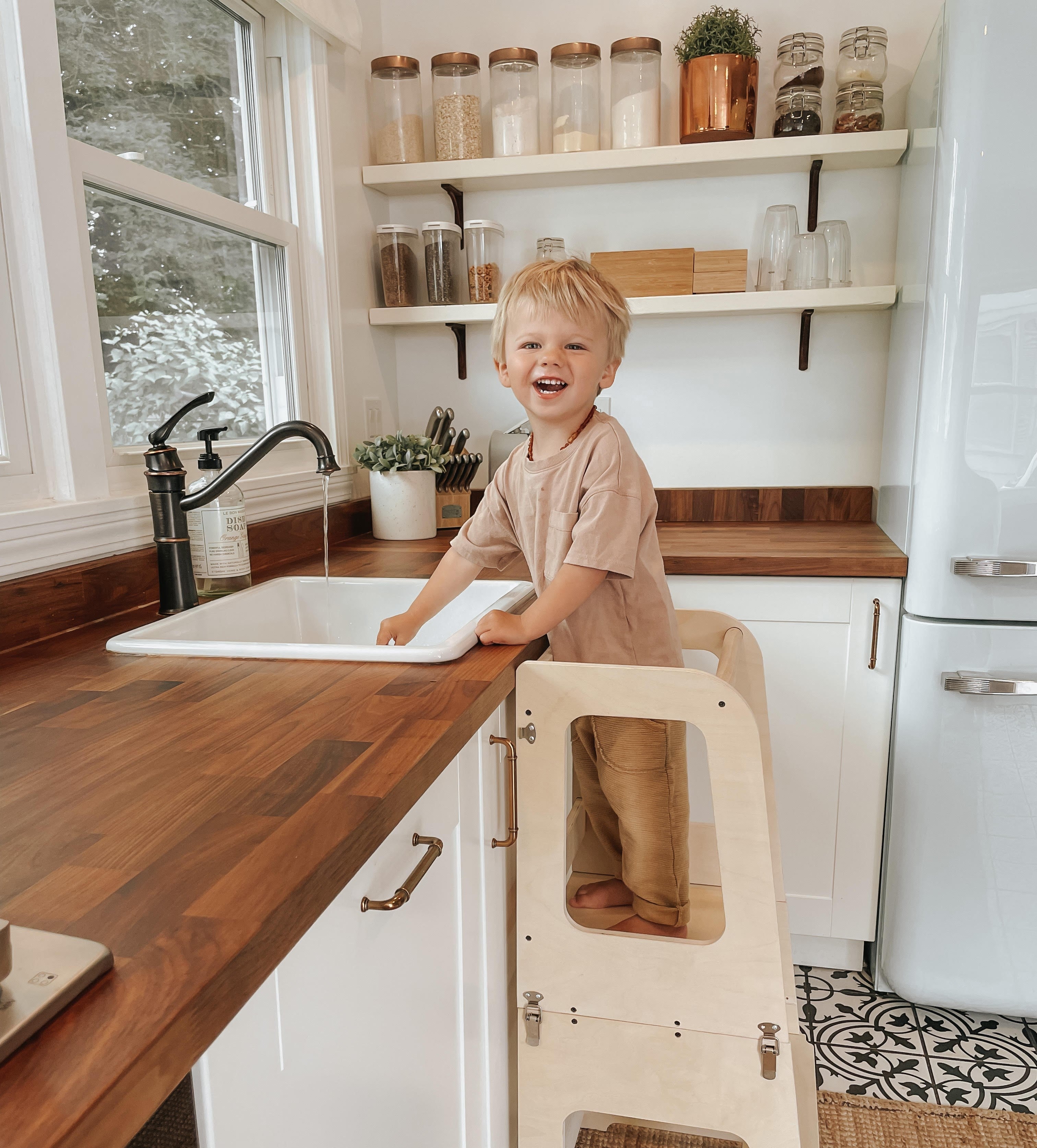

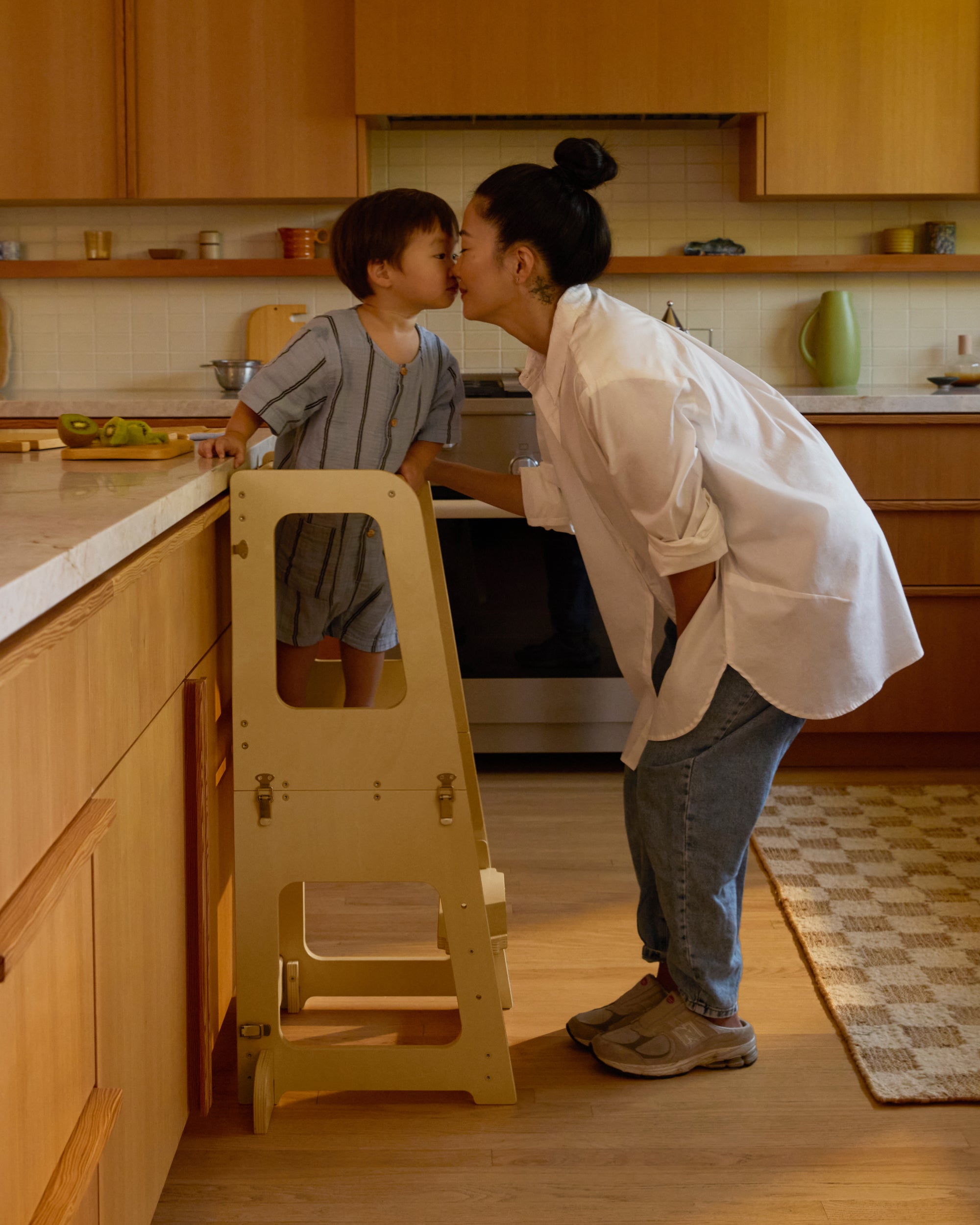
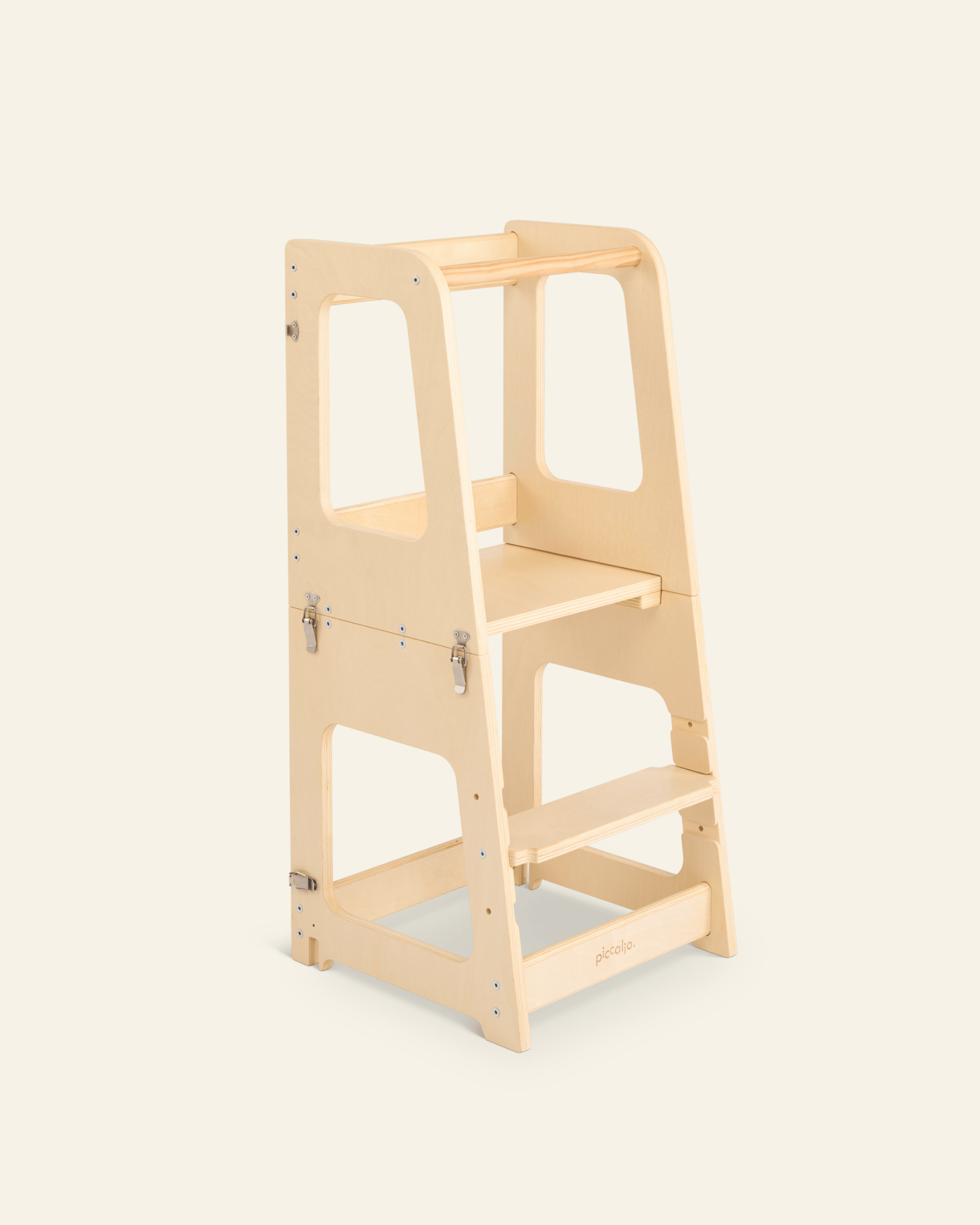
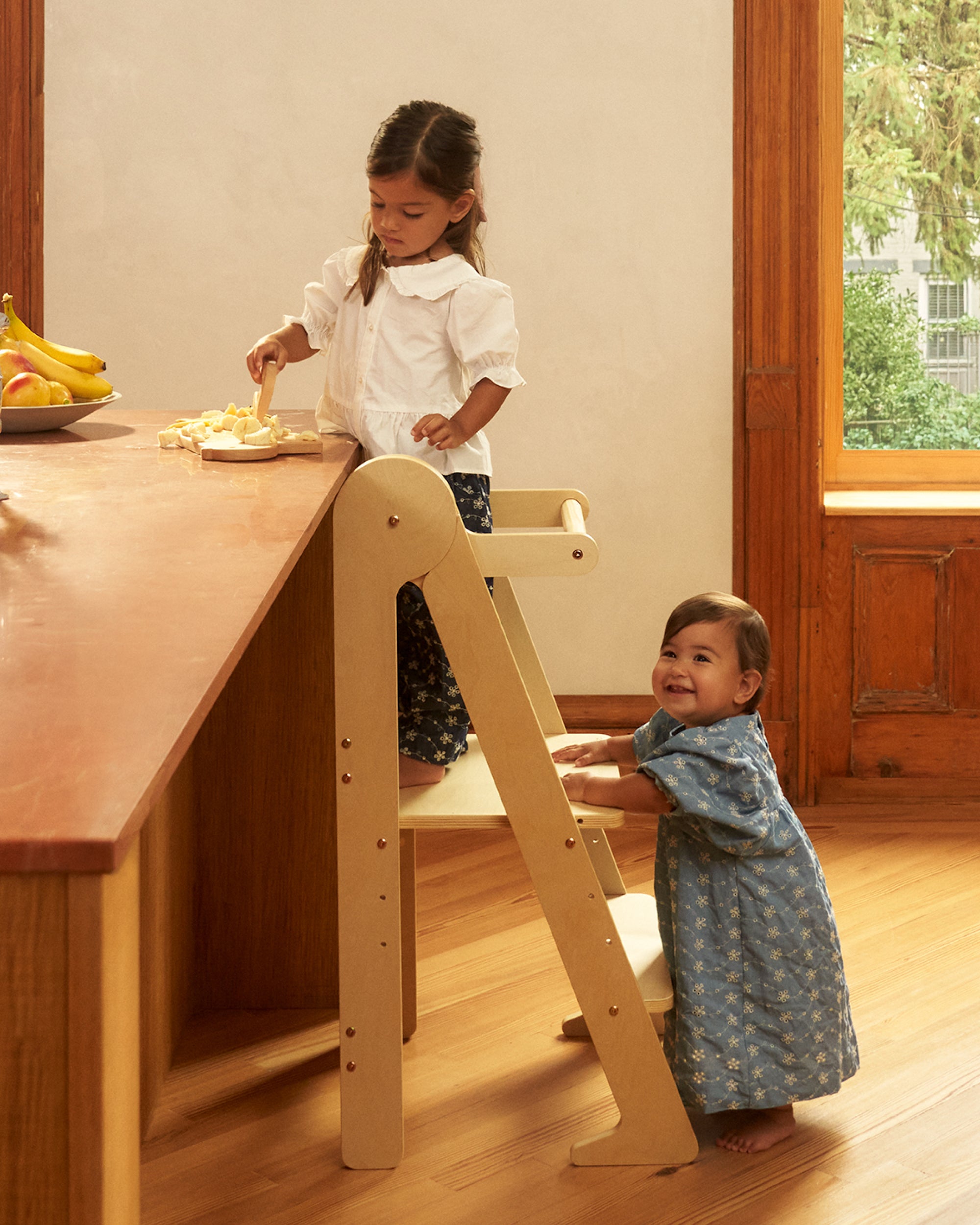
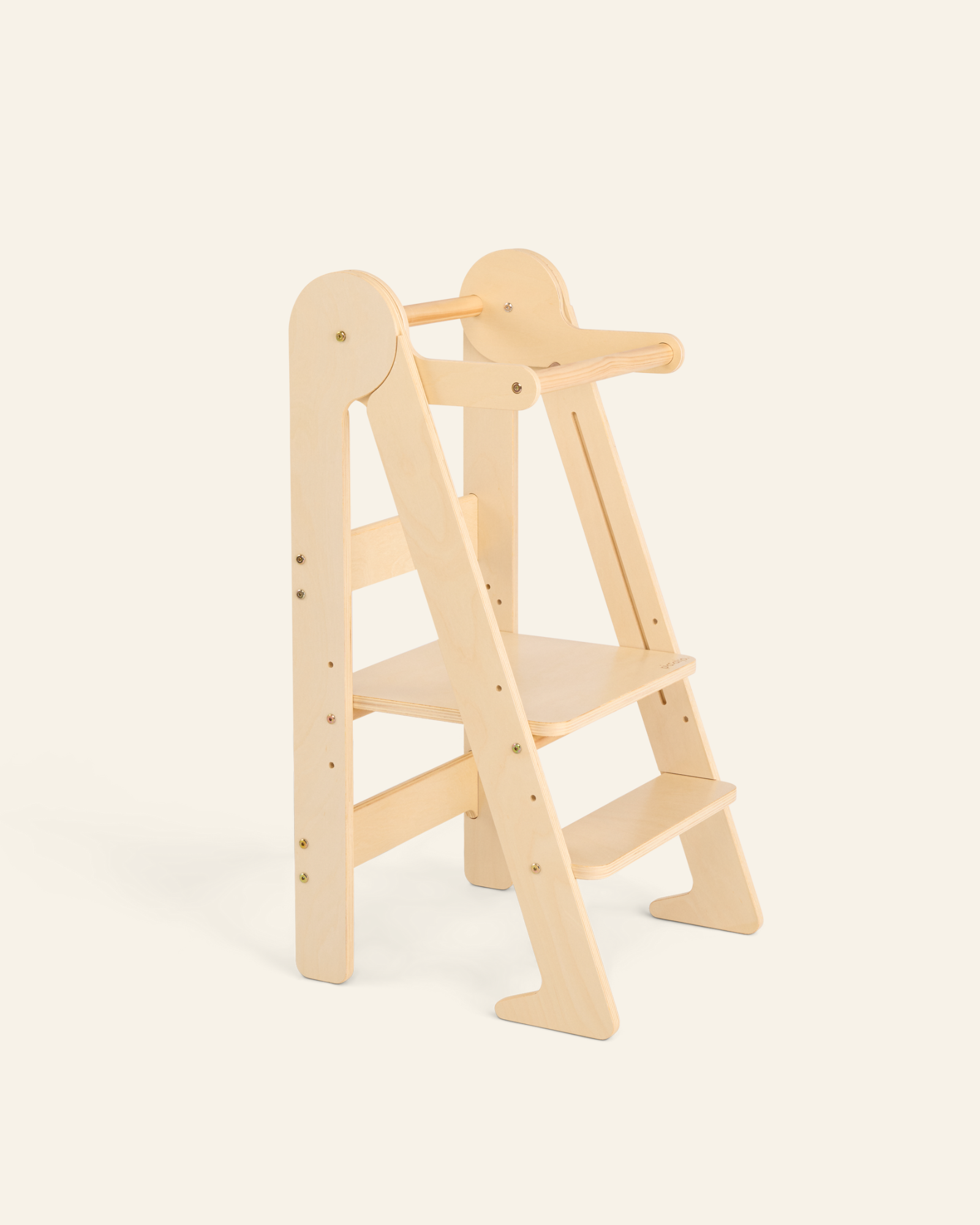
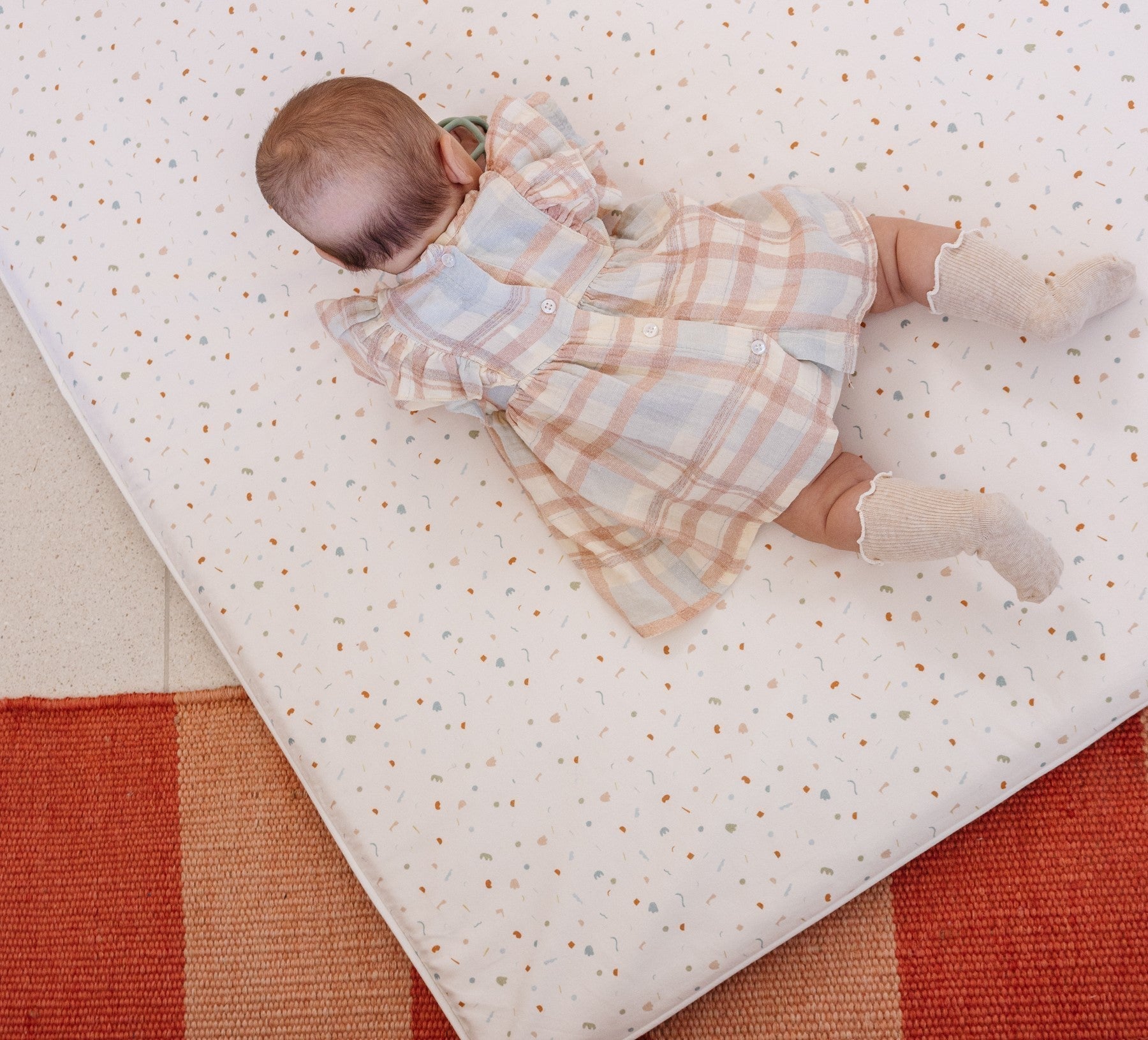

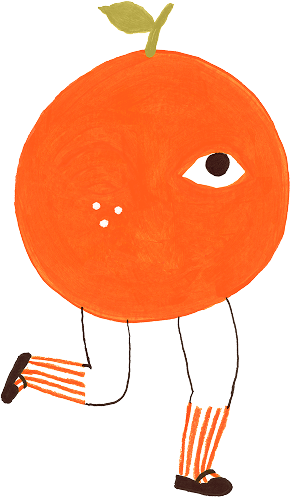

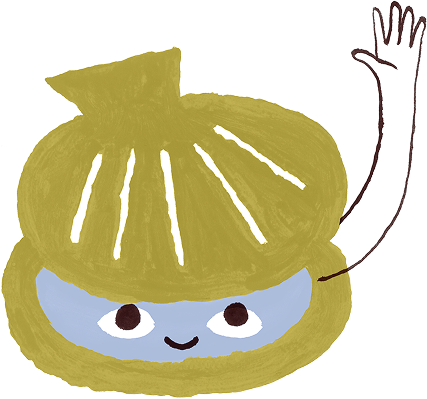
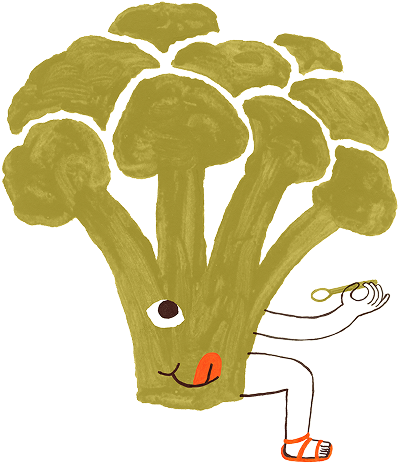
Leave a comment
This site is protected by hCaptcha and the hCaptcha Privacy Policy and Terms of Service apply.